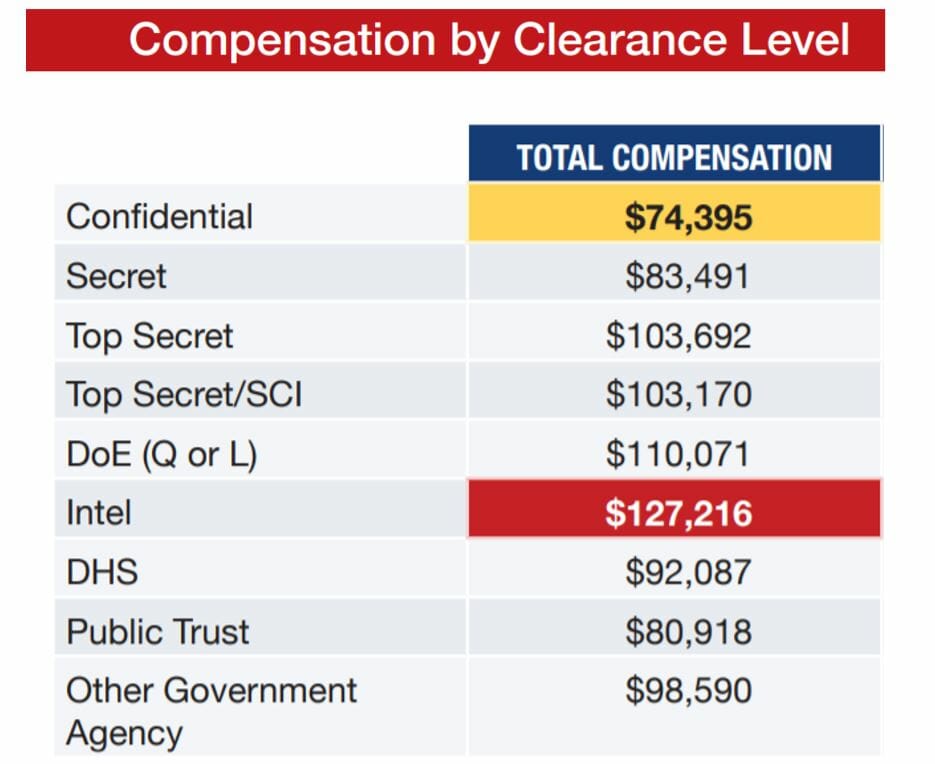

Security Clearance
One consideration for clearance holders is knowing the benefits of the different clearance levels. Sometimes, that’s an irrelevant question if you’re only clearable up to certain levels or if your job function will rarely if ever require a higher clearance level. However, some careers like software development or systems engineering have flexibility on job functions and clearance requirement levels that you may want to consider. Let’s look at whether a higher clearance level actually pays more.
The challenge of quantifying the monetary value of the security clearance for the clearance holder is that you always have to be sure you’re comparing apples to apples. Many variables come into play including location, job requirements, employer, or experience level. Some of the monetary benefits are difficult to quantify. “I call security clearances the Willy Wonka golden ticket,” says Mark Zaid, a Washington D.C. national security attorney who regularly handles security clearances. “It opens incredible doors that otherwise would never be opened, and they typically have a bigger pot of gold at the end of the rainbow than non-cleared positions.”
The pay bump for Top Secret clearances is often cited as a 12% or $20K increase; however, you will be hard pressed to find full confirmation of firm numbers. Tom Weinert, founder of the Mount Indie talent firm explained, “…the 20k bump from secret to TS is not really what we see in the market. We see a bigger jump up to SCI work and an even bigger jump for Poly positions.”
Due to the government’s labor category descriptions, Weinert says that years of experience are often the driver in salary sums. For federal employees, a GS-15 employee has the same salary regardless of clearance level. And from my view as a former DoD contractor, salary bumps followed employer changes after experience or education additions and not just clearance changes. In other words, acquiring a Top Secret clearance alone does not translate instantly to higher pay unless the job and contract requirements change at the same time. However, it can mean that future job applications to Top Secret positions will translate to a higher salary for the clearance holder. The real monetary value comes from an increased marketability because of supply and demand.
ClearanceJobs 2020 Compensation report revealed the following salary levels for clearance holders:

Beyond clearance level, working for the federal government may pay differently than the commercial sector. However, some jobs, like those in the CIA or NSA, will never really translate to the commercial world, so there is no point in making a comparison. Additionally, it’s important to remember the job security of government employment, unless Congress is trying to pass a budget, of course. However, comparing government and commercial work during COVID-19 has shown that the defense industry has remained strong, and is in fact growing. It makes sense to grow your marketability within this industry now.
Aside from the extra scrutiny during the clearance process, as well as the required carefulness in life choices, the cleared employee has nothing to lose from going for the next clearance rung. Holding a clearance is like a reliability ticket for clearance holders to give to future employers. Government and contractors alike need trustworthy employees that understand their role in national security. And that is worth paying for whenever possible.